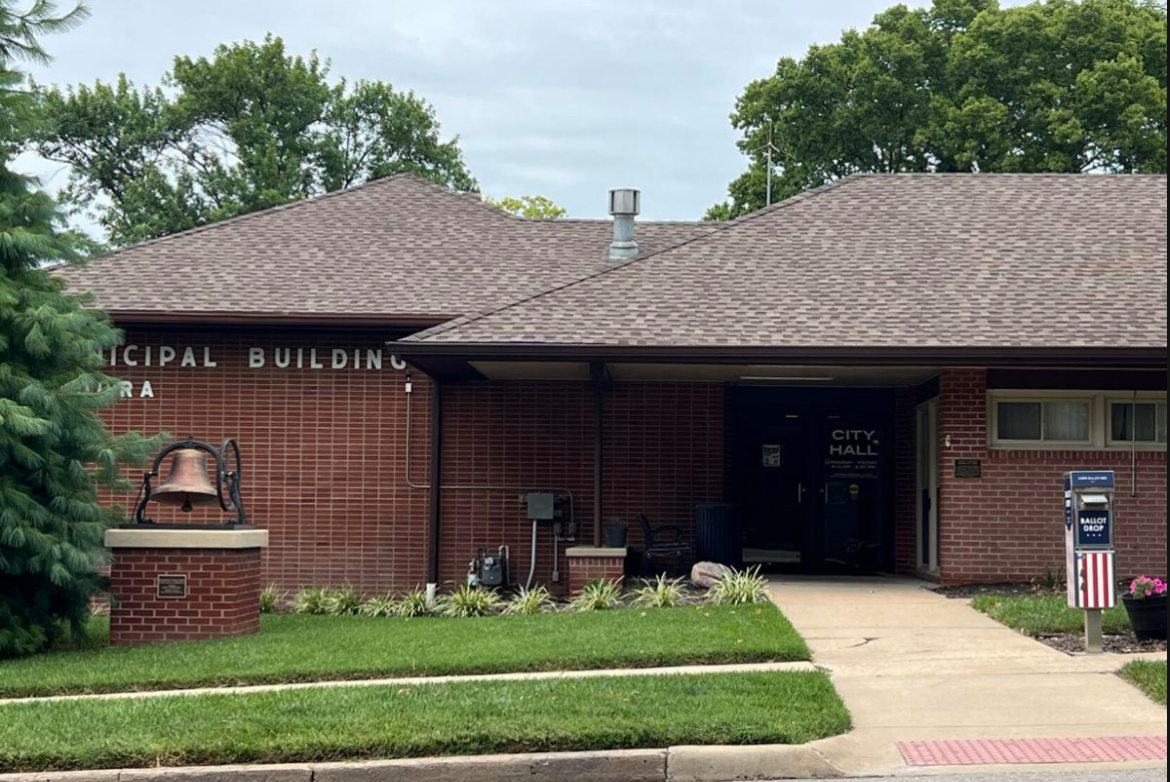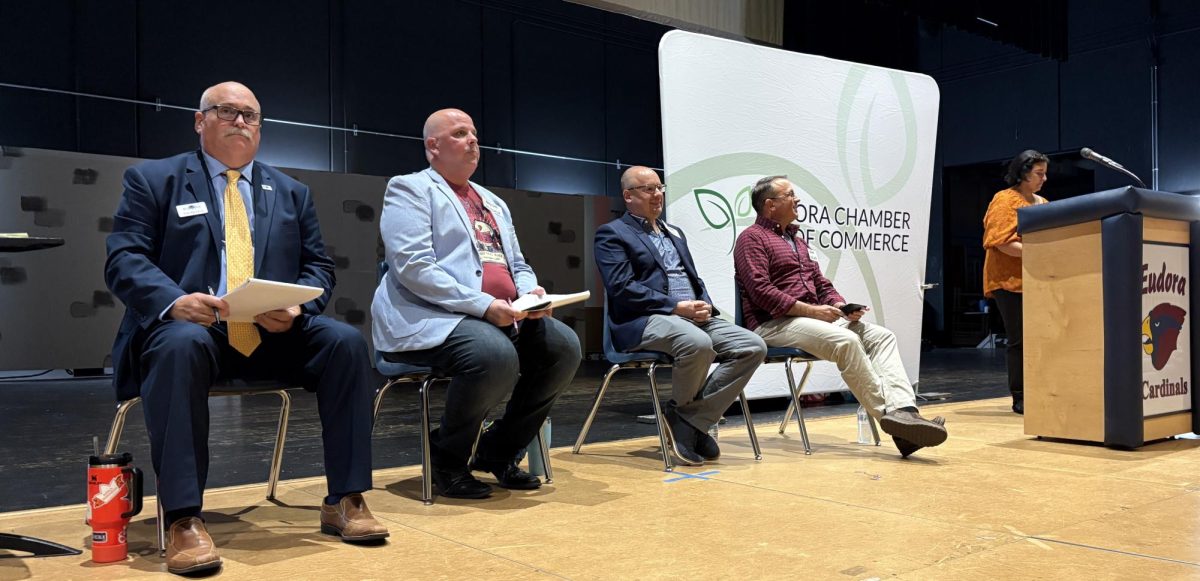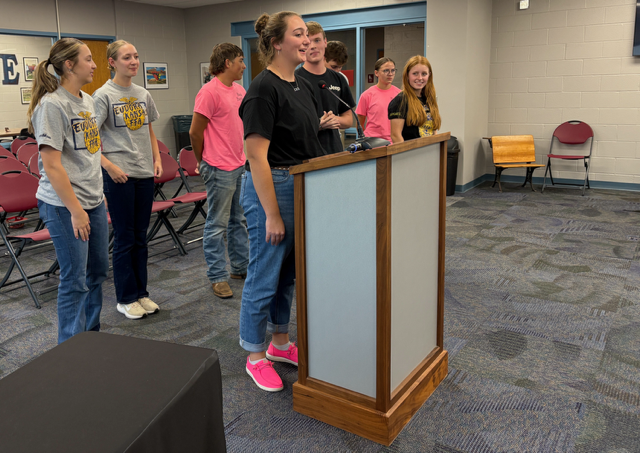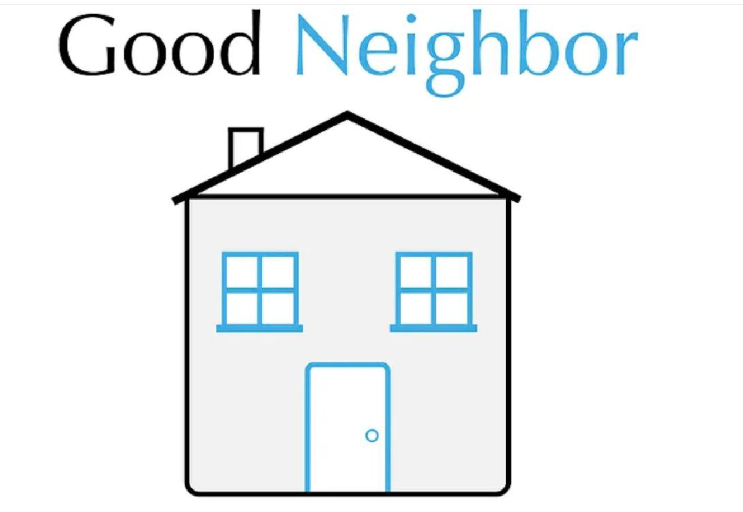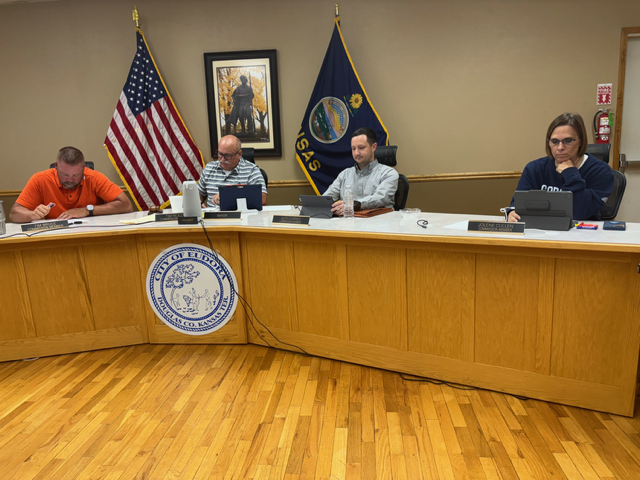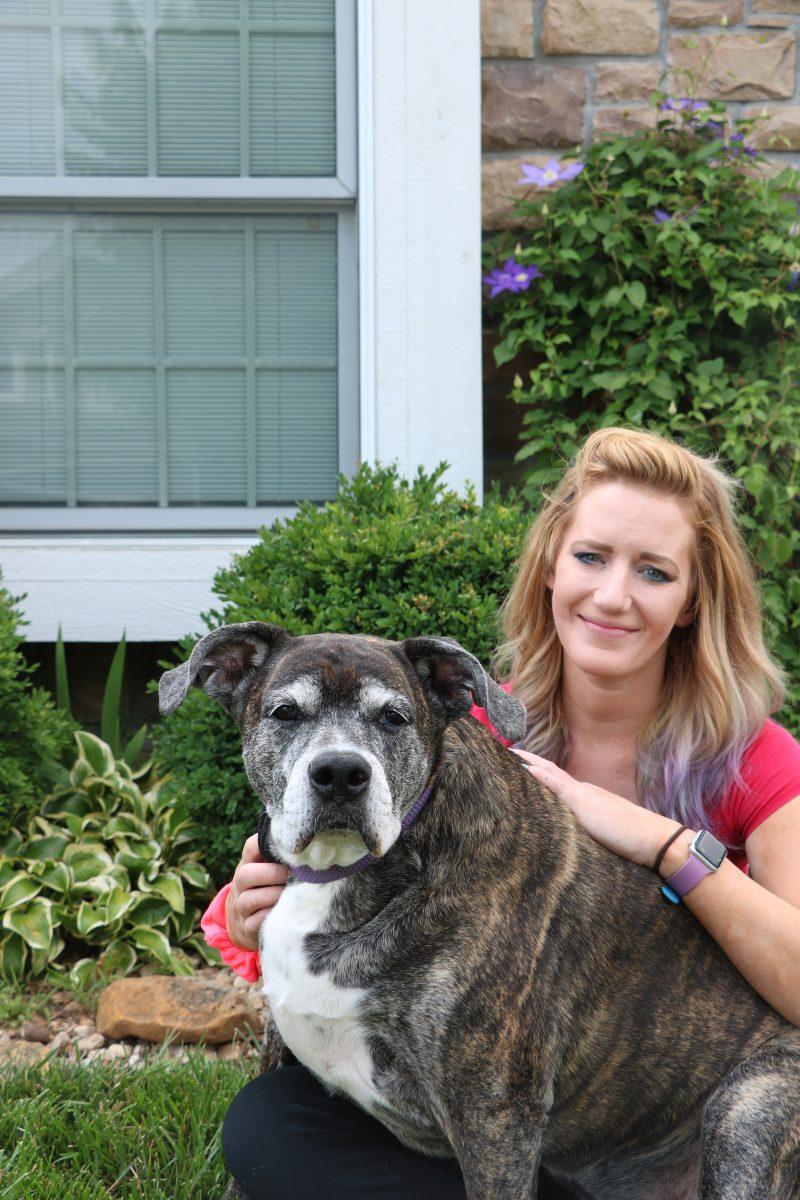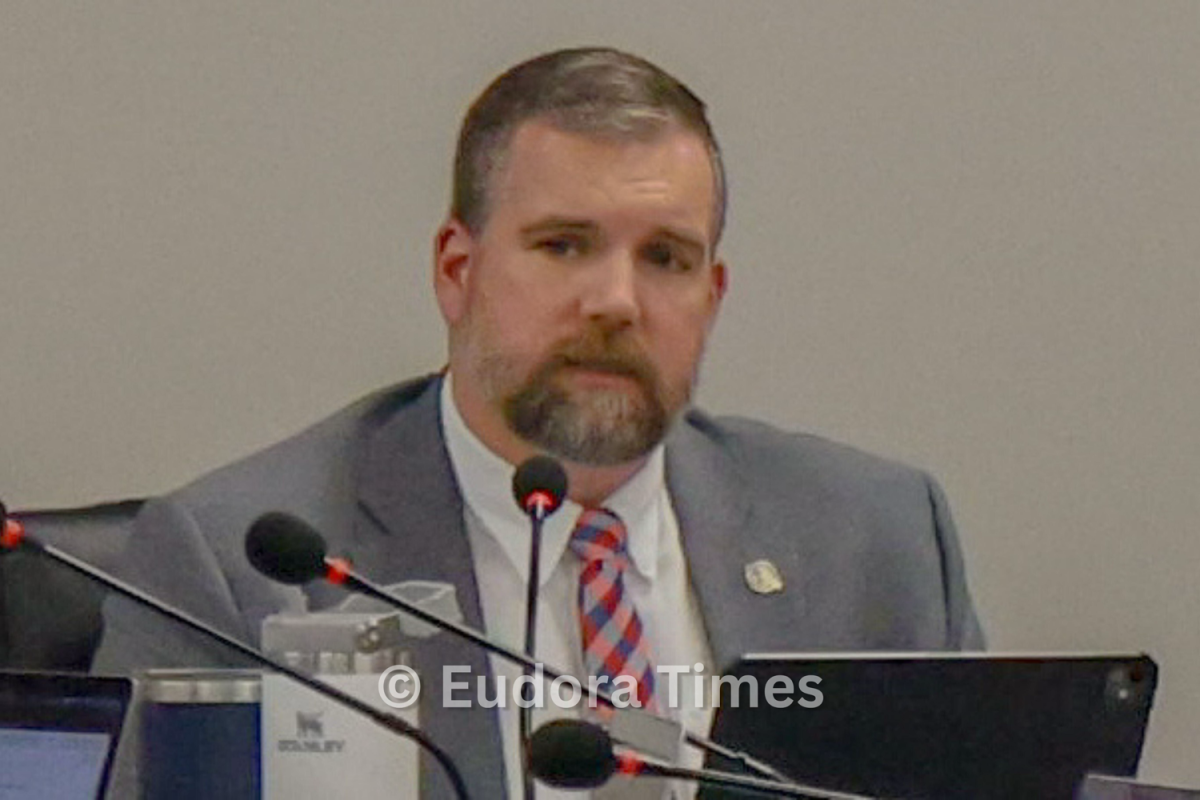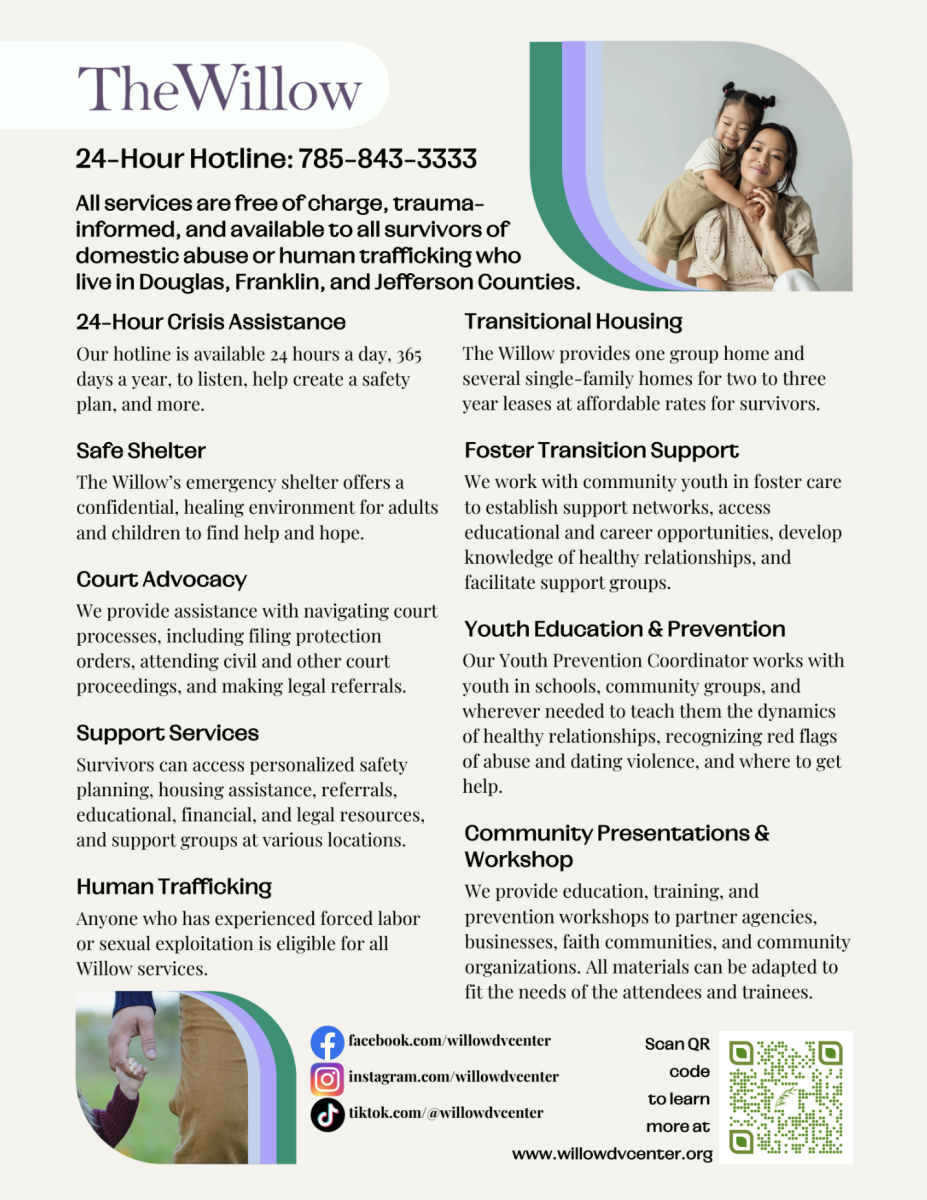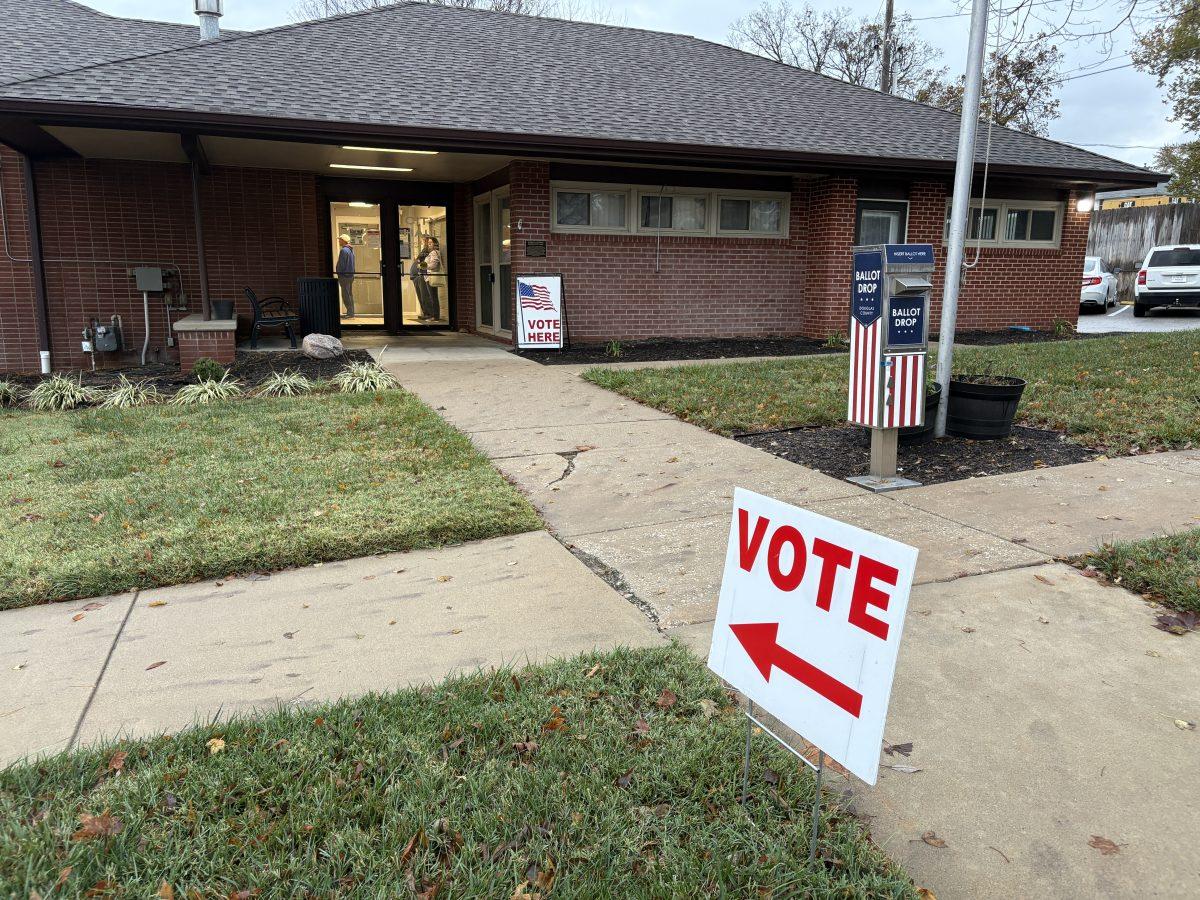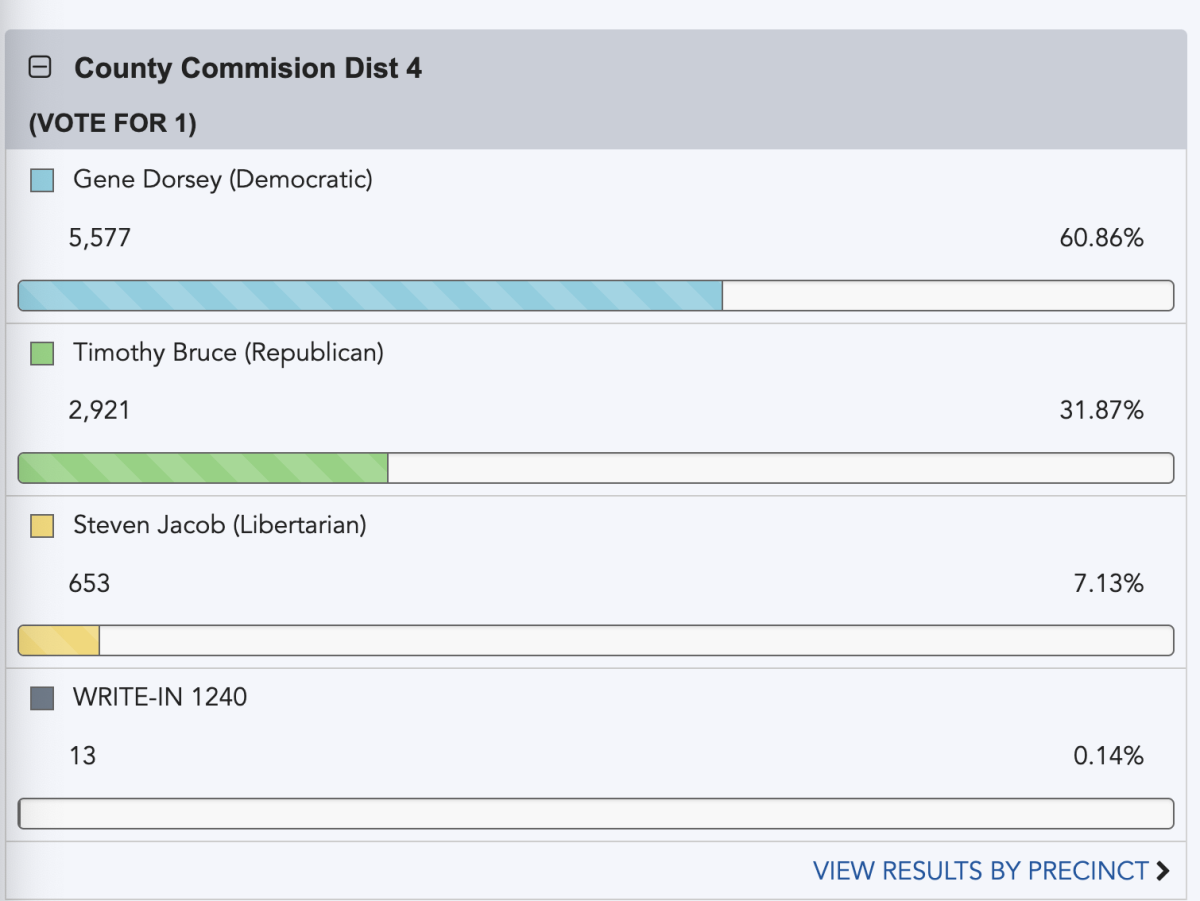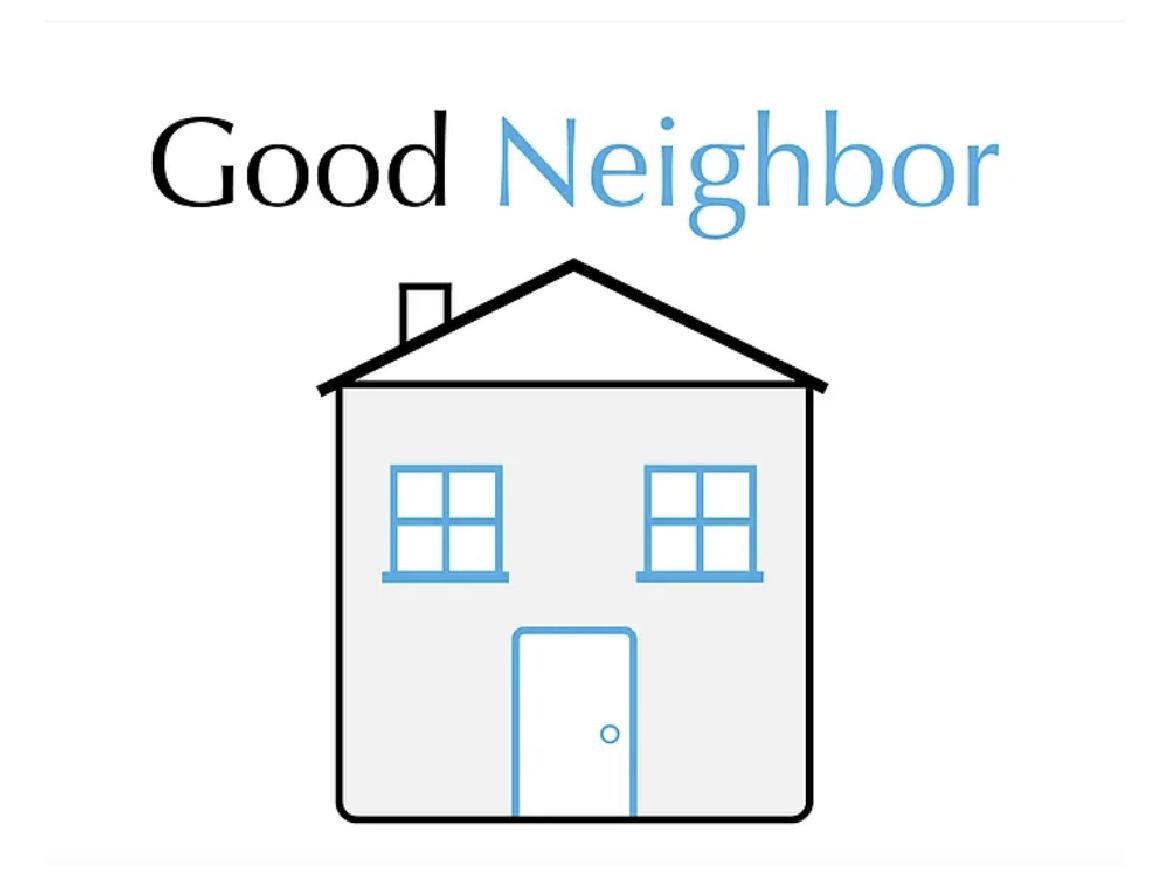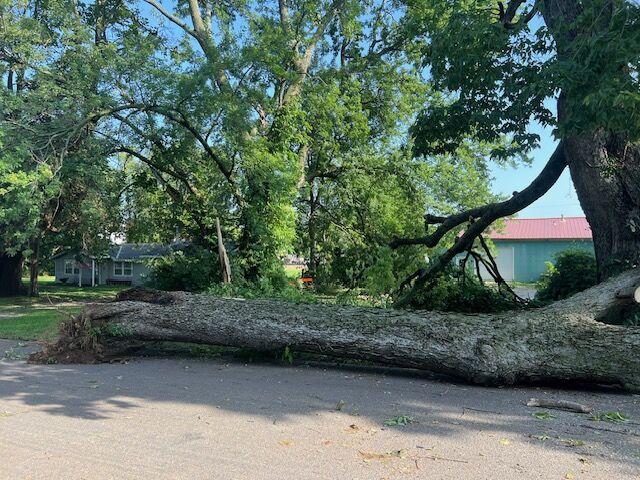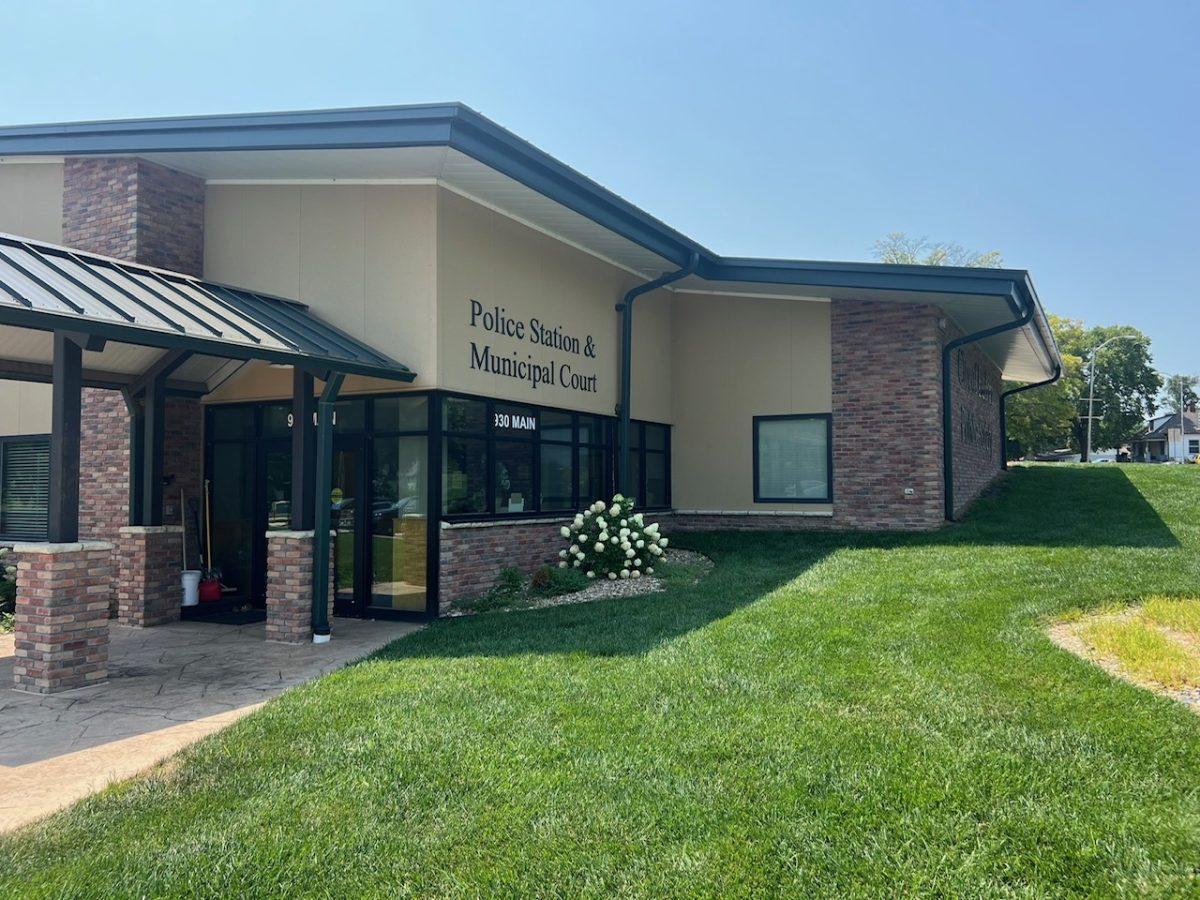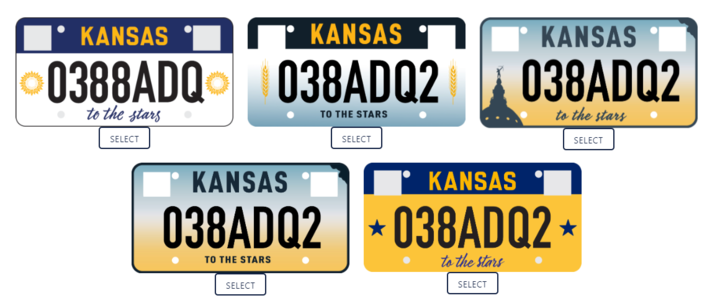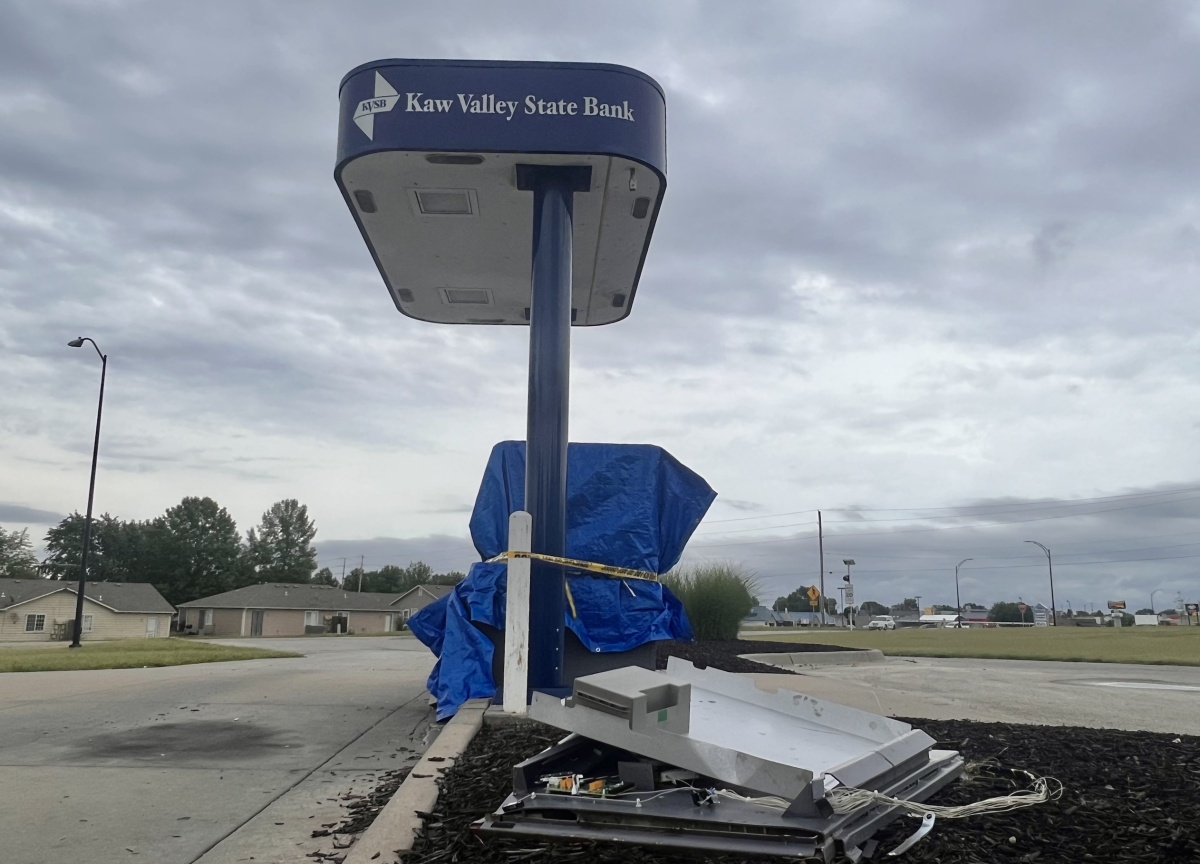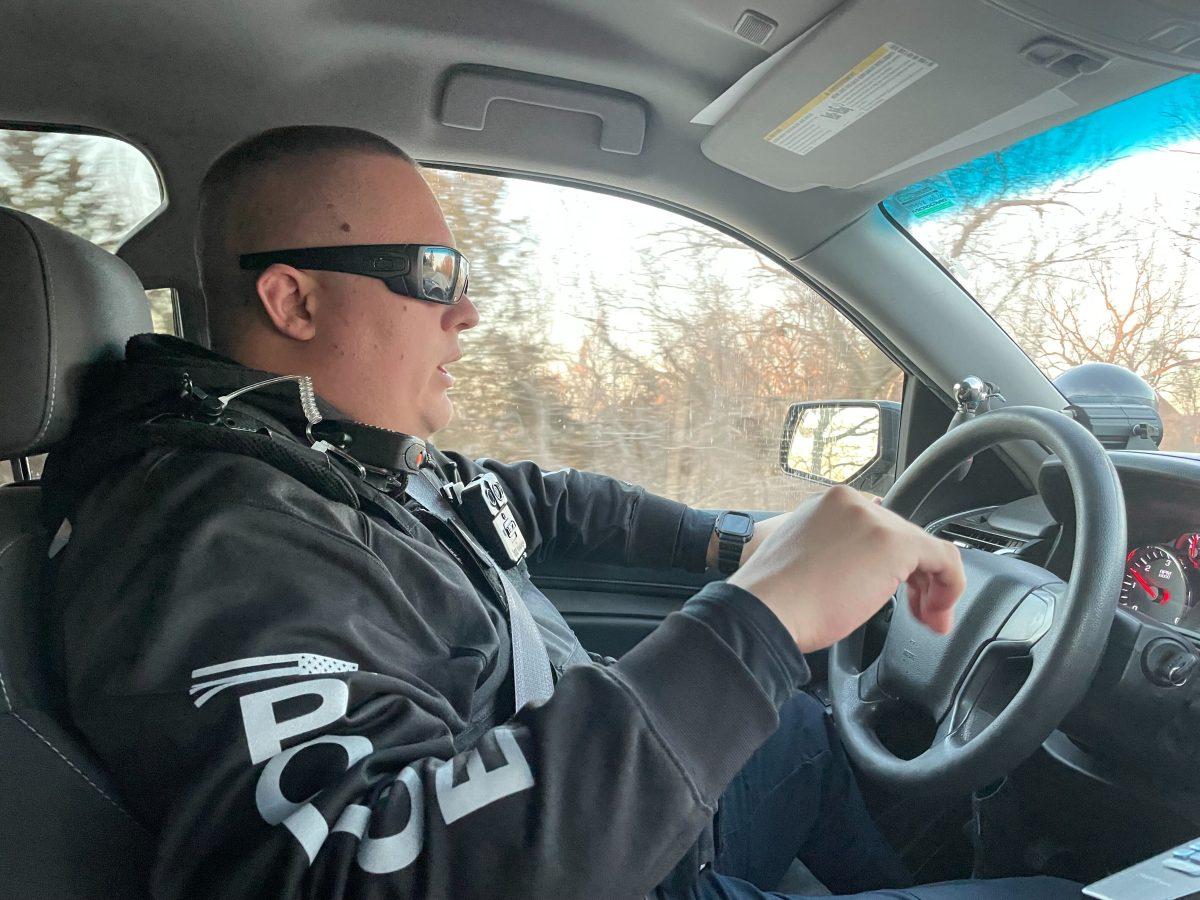Eve Pierson regularly keeps dogs in her garage in hopes of reuniting them with their owners.
This year, Pierson said she’s helped about 15 dogs find their way home and kept several in her garage to track down their owners. There are always more lost or missing dogs during the summer, but the issue seems to be increasing, Pierson said.
Facebook groups tag Pierson in posts hoping she can either help identify the dog’s owner or keep it until the owner is located. Although it is a time commitment, Pierson is passionate about getting dogs back home.
“They seem to find me,” Pierson said. “We need some kind of help. The public turns into animal control.”
Officially, police officers are in charge of responding to lost dog calls.
Per Eudora code, animals must be leashed during walks or fenced within their owner’s properties. If dogs are lost and found by community members, the Police Department handles them.
Police Chief Wes Lovett said residents receive warnings for not following city ordinances before receiving a notice to appear in court if it continues to happen.
“One of the biggest problems is we do not have animal control for this city,” Lovett said. “It’s not the most ideal situation that we have to take an animal to Public Works and then it becomes their responsibility to feed the dogs and everything else.”
In the first five months of 2023, the Police Department has responded to 59 animal-related calls. In 2022, it responded to 208 calls.
Lovett said these numbers are all of the animal-related calls, and it would be difficult to identify how many deal with lost or stray dogs specifically. There is not a compiled list on the number of fines or warnings given to residents related to lost animals.
The Lawrence Humane Society has limited contractual obligations with the city of Eudora and is only contracted to receive animals after they complete a stray hold by the city, said Katie Barnett, animal welfare counselfor the Humane Society.
“The only thing we do for the city of Eudora is help to get those animals adopted,” Barnett said. “That’s what our agreement says.”
Although the Humane Society has taken over animal control services for the unincorporated portions of Douglas County as of 2022, Eudora remains without a division for these services. Animal control must come from city code, unless cities decide to implement county ordinance.
“Each city does its own enforcement because each city has its own city code,” Barnett said.
If the city were to look into getting these services, that is something that would be decided in the future, especially with potential growth within city boundaries, Lovett said.
Mayor Tim Reazin said reviewing statistics with future growth may call for many new services, and the city would weigh the needs as they come.
“I don’t know if we have a need yet, I know that officers are really good about, when someones called in with a dog or stray animal, they go take care of it or try to reach out to the folks in the community that posted on the webpages to see if that animal can be found,” he said.
Barnett said there is a need for more animal control services or potentially a new division to provide the city a place to house animals, especially if Eudora’s population is set to rise in the near future.
“There is always a need for some kind of animal welfare oversight, both for the humane treatment of animals and for public safety from animals,” Barnett said.
Barnett said it should not fall on law enforcement to tend to the issues, both because they are understaffed and overburdened and because they are not trained on animal handling or the resources available to allow folks to keep their pets.
Pierson said the city is in need of animal control services to ensure animals don’t end up needing emergency medical care.
“I really just think it’s the lack of community resources more than anything,” Pierson said. “I can’t just call animal control and say, ‘Hey.’”
Here is what city ordinance says now related to animal control and regulation:
Running at large; prohibition; fines.
(a) It shall be unlawful for any person owning, keeping, harboring, or maintaining any dog, to permit such dog to run at large within the city limits. A dog shall not be deemed to be running at large if:
(1) The dog is firmly attached to a leash or chain under the physical control of its owner or keeper;
(2) The dog is within a structure or within a fence enclosure with the permission of the owner or keeper of the structure or fence enclosure; or
(3) The dog has an operating electronic collar and is under the charge, care, or control of its owner or keeper, who is operating an electronic pet containment system or electronic training system for the animal.
(b) Any dog on property without the permission of the property owner shall be deemed to be a dog running at large and the owner of such dog shall be in violation of this section.
(c) The provisions of this section shall not apply to persons, who have a physical disability or visual impairment, who are using service dogs, and who can provide adequate documentation, upon demand of an animal control officer or law enforcement officer, that the service dog is an animal trained by an accredited institution that trains dogs for service work assisting the physically disabled or visually impaired.
(d) Any person found guilty of permitting an animal to run at large in violation of this section shall be fined an amount as set by resolution of the governing body from time to time. The municipal judge shall have no authority to suspend the fine or any portion of the fine established by this section. The fine shall be in addition to any applicable court costs, impoundment fees, or licensing fees. The Humane Society or other impoundment facility shall not release an animal to its owner if the owner has failed to pay a fine or licensing fee or has failed to appear in municipal court for the adjudication of any charged violation of this section.
(Ord. 769; Code 2016)
2-221. Filing complaints; enforcement; penalties.
It is hereby made the duty of the animal control officer, or anyone having the authority of an animal control officer, including but not limited to law enforcement officers, to enforce the terms and provisions of this article. The animal control officer and other authorized agents of the city are hereby authorized to issue citations to owner of and/or impound any dog found in violation of the terms of this article. Any person having personal knowledge of the violations of any provisions of this article may make a verified complaint of the facts, showing a violation of this article, before the municipal court judge and upon the filing of such a complaint, the municipal court judge may issue proper legal process to enforce the penalties provided specifically in this article or, where not specifically provided herein, the penalties provided in section 1-111.
The entire city code related to animal control can be found here.
Reach reporter Sara Maloney at [email protected].







